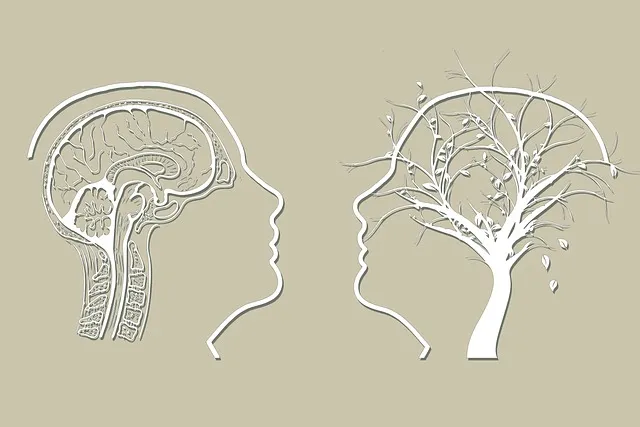Anxiety, a complex global issue affecting millions, requires understanding its symptoms (e.g., rapid heartbeat, persistent worry) and root causes (genetic, brain chemistry, stress, environmental). Kaiser Permanente mental health Longmont advocates for policy change, positive thinking, and self-esteem improvement to combat negative thought patterns. They offer evidence-based solutions like CBT, self-awareness exercises, and Mental Health Education Programs, along with lifestyle adjustments such as balanced diets, exercise, and quality sleep, empowering individuals from diverse backgrounds to manage anxiety effectively through comprehensive strategies.
Anxiety is a prevalent condition affecting millions, with resources like Kaiser Permanente Mental Health Longmont offering valuable insights into its symptoms and causes. Effective anxiety management involves understanding these aspects and employing evidence-based techniques. This article delves into strategies that range from identifying triggers to adopting mindfulness practices and lifestyle adjustments, all backed by scientific research. Additionally, it highlights the significance of support systems in overcoming anxiety, emphasizing the role of social connections and professional help as key components of a comprehensive approach to managing this complex emotion.
- Understanding Anxiety: Symptoms and Causes as Per Kaiser Permanente Mental Health Longmont
- Evidence-Based Techniques for Effective Anxiety Management
- Lifestyle Adjustments and Support Systems for Overcoming Anxiety
Understanding Anxiety: Symptoms and Causes as Per Kaiser Permanente Mental Health Longmont

Anxiety is a common yet complex condition that affects millions worldwide, according to Kaiser Permanente Mental Health Longmont. Recognizing its symptoms and understanding its causes is a crucial first step in managing anxiety effectively. Symptoms can vary from physical sensations like rapid heartbeat, shortness of breath, and sweating, to cognitive and behavioral changes such as persistent worry, restlessness, and avoidance of situations that trigger anxiety.
The Kaiser Permanente mental health experts attribute anxiety disorders to a combination of genetic predisposition, brain chemistry, stress, and environmental factors. Mental Health Policy Analysis and Advocacy plays a significant role in addressing the societal aspects that contribute to anxiety, while Positive Thinking and Self-Esteem Improvement techniques can empower individuals to combat negative thought patterns and build resilience against anxiety triggers.
Evidence-Based Techniques for Effective Anxiety Management

Anxiety management techniques backed by evidence have proven effective in addressing and mitigating symptoms, offering a beacon of hope for those seeking relief. Kaiser Permanente mental health Longmont, for instance, employs evidence-based practices like Cognitive Behavioral Therapy (CBT), which targets negative thought patterns and behaviors contributing to anxiety. This therapeutic approach helps individuals develop healthier coping mechanisms and improve their overall mental wellness.
The Mental Wellness Podcast Series Production also plays a vital role in spreading awareness and promoting self-awareness exercises tailored for anxiety management. Additionally, well-designed Mental Health Education Programs empower individuals with knowledge about anxiety disorders, fostering better understanding and enabling proactive management. These integrated strategies, available through Kaiser Permanente mental health Longmont’s services, reflect the holistic approach to mental health education and treatment.
Lifestyle Adjustments and Support Systems for Overcoming Anxiety

Overcoming anxiety requires a multifaceted approach, and lifestyle adjustments play a significant role. Kaiser Permanente mental health Longmont professionals emphasize the importance of creating healthy habits to manage and reduce anxiety symptoms. This can include adopting a balanced diet, engaging in regular physical activity, and prioritizing quality sleep. These simple yet powerful changes can positively impact one’s overall well-being and mood management, providing individuals with tools to navigate their daily lives with greater ease.
A robust support system is another crucial element. Building connections with like-minded individuals or joining support groups can offer a sense of community and understanding. Cultural sensitivity in mental healthcare practice is also essential, ensuring that individuals from diverse backgrounds feel seen and heard. By combining inner strength development through lifestyle adjustments and leveraging the power of connection, folks can effectively manage their anxiety and cultivate resilience.
Anxiety management is a personalized journey, and with the right tools, it’s possible to overcome and reduce its impact. By understanding the symptoms and causes of anxiety as outlined by Kaiser Permanente Mental Health Longmont, individuals can begin to navigate their mental health effectively. Adopting evidence-based techniques, such as mindfulness, cognitive behavioral therapy (CBT), and relaxation strategies, empowers folks to manage their anxiety on a daily basis. Additionally, making positive lifestyle adjustments, like regular exercise, adequate sleep, and a balanced diet, coupled with building a robust support system, can significantly enhance one’s ability to overcome anxiety. Remember that seeking help from professionals, such as those at Kaiser Permanente Mental Health Longmont, is an essential step towards achieving lasting mental well-being.






